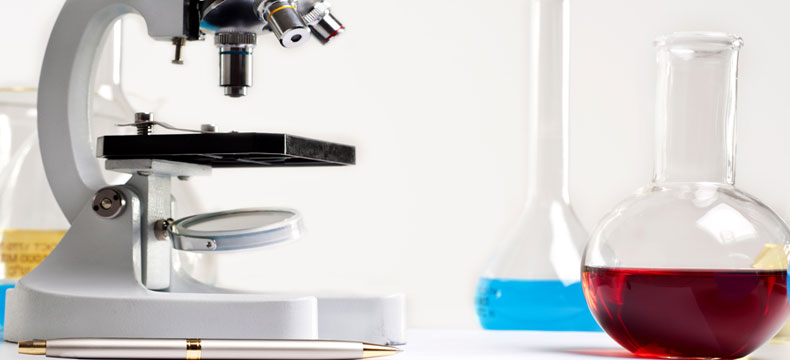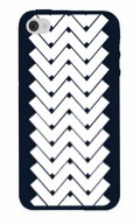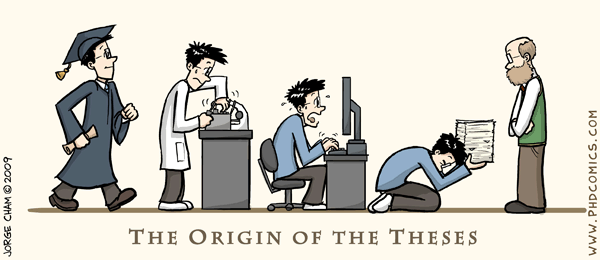|
Image from http://www.joneslanglasalle.com/ By Nia Walker ‘16
You might be wondering whether pursuing a formal higher education after college is right for you. Then there is considering if you want to continue on with your formal education immediately after throwing your graduation cap into the air. Finally, you might be deciding what sort of further formal education will best suit your interests. Theseare complex and important decision, and it is one that not everyone gives the amount of thought it deserves. Until recently, I had not seriously considered a path other than receiving a Ph.D. in science. I knew from a young age that I wanted to somehow be involved in science throughout my life. My thoughts used to be along the lines of, “I don’t want to be a doctor, but I love science. So it looks like research and/or academia and attending school until I’m thirty is what I’ll be doing.” My previous understanding of scientific pursuits has, subconsciously, been largely fueled by the people in science I have personally known and come to look up to. Now I will readily admit that I have had limited exposure to serious and rewarding careers in science. However, college has taught me a great deal to this regard. What I am about to share with you is one of the things I quickly learned after trying on my first lab coat, pulling my first all-nighter to finish a research paper assignment, and preparing my first agarose gel from scratch for electrophoresis. There truly is a lot out there in the world to explore. As simple as this idea is, my point is that science can literally be found everywhere. It is in everything we do and everything we haven’t yet done. Traditionally, fields in science are easily categorized into either clinical or basic research, but there are countless ways to pursue careers in science that are much less discussed. Looking into other science careers has allowed me to make a more informed and confident assertion concerning my current decision to pursue a Ph.D. To that end, I have done quite a bit of research on other potential jobs and listed six of them below for you. Perhaps you are looking for a career to dedicate your time to before going on to higher degree, or maybe you are thinking that these jobs are enticing enough to become lifelong careers. Either way, I hope these six “unconventional” pursuits spark new thoughts and more tough conversations for you concerning how and if graduate school or medical school may fit into your life’s plans. 1) Scientific Consultant This sort of consulting provides clients with scientific and oftentimes creative solutions to environmental and social challenges. Scientific consultants have the unique opportunity to build upon their careers at the pace they desire. Consulting relies heavily on problem solving, independence, good skills in multitasking under time pressure, and a constant openness for learning. 2) Lab Technician Lab technicians are charged with making sure laboratories run as efficiently as possible. They primarily manage samples, data, and materials in laboratories. This may be a great path for someone interested in staying connected to scientific research without being directly responsible for analyzing information and coming up with subsequent conclusions or for those who want to boost their research repertoire before going on to graduate or medical school. 3) Science Teacher The world can never have enough dedicated and passionate individuals interested in sharing their scientific knowledge with their peers and younger persons. There are numerous options for those captivated by teaching (for example: Teach for America, teaching abroad, or aspiring to become a teacher at an elementary school or a college). 4) Science Writer or Journalist Science writers and journalists have the responsibility of relaying important scientific news and discoveries to the general public in a way that is both relevant and accessible. From blogging for National Geographic to writing for the NY Times, there are many fitting places for people interested in science writing and journalism. (A great way to get some experience in this is by writing for The Scientista Foundation!) 5) Science Museum, Zoo, or Aquarium Worker Whether it is direct animal care or maintaining technological exhibits, workers in science museums, zoos, and aquariums all have the opportunity to educate the public and help cultivate more specific interests in young people. 6) Science Librarian Similarly to science teachers, there will never be a time when there are too many science librarians. They primarily assist researchers and students with locating the most accurate and important information available. Science librarians are individuals who also have easy access to the most updated scientific information available. Are you interested in looking into this topic further? Here are some great resources. Scientific Consulting: 1)http://sciencecareers.sciencemag.org/career_magazine/previous_issues/articles/2002_12_13/nodoi.9034383921133532073 2)http://www.jhsph.edu/offices-and-services/career-services/for-students/helpful-resources/Public_Health_Employers/201213_Employer_Information_Sessions/ChemRisk%20Grespin%20Hopkins%20Presentation%2012-3-12.pdf 3)http://www.scgcorp.com Lab Technician: 1)http://www.collegesanddegrees.com/health/laboratory-technician 2)http://www.prospects.ac.uk/scientific_laboratory_technician_job_description.htm Science Teacher: 1)http://www.teachforamerica.org 2) http://expatteaching.com/component/content/article/71-teach-science-abroad Science Writer or Journalist: 1)http://casw.org/casw/guide-careers-science-writing 2)http://topics.nytimes.com/top/reference/timestopics/people/b/william_j_broad/index.html 3)http://www.nationalgeographic.com/jobs/ Science Museum, Zoo, or Aquarium Worker: 1)http://www.animaledu.com/Careers/ZooAquariumScienceCareers.aspx 2)http://www.mos.org/jobs Science Librarian: 1)http://www.ala.org/acrl/sites/ala.org.acrl/files/content/aboutacrl/directoryofleadership/sections/sts/stswebsite/acrl-sts-brochure.pdf 2)http://repository.cmu.edu/cgi/viewcontent.cgi?article=1020&context=lib_science
0 Comments
High School Scientista Spotlight |
What's NewUpcoming EventsFinal ScientisTalk of the Semester!
When: 4/25, 6-70pm Where: Lowell Small Dining Hall Subscribe to Our Mailing ListArchives
November 2016
Categories |
The Scientista Foundation, Inc. All Rights Reserved © 2011-2021 | Based in NY | [email protected]
The Network for Pre-Professional Women in Science and Engineering
The Scientista Foundation is a registered 501(c)(3) -- Donate!
The Network for Pre-Professional Women in Science and Engineering
The Scientista Foundation is a registered 501(c)(3) -- Donate!






 RSS Feed
RSS Feed